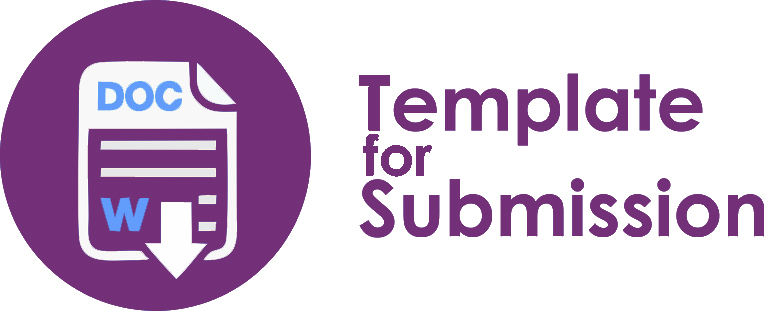Development of a Project-Based e-Module to Strengthen the Profile of Pancasila Students on Green Chemistry Materials in Senior High School
DOI:
https://doi.org/10.46229/elia.v5i1.990Keywords:
e-Modul; Profil Pelajar Pancasila; Green Chemistry; Project Based Learning.Abstract
The use of e-Modules currently plays a significant role in facilitating the learning process in classrooms, as modern technology enables effective and independent learning. This is particularly relevant in chemistry education, specifically in the topic of green chemistry, which extensively discusses environmental issues. The principles of green chemistry can be implemented in daily life by incorporating the strengthening of the Pancasila Student Profile. This study aims to explore the development process of an e-Module, its theoretical feasibility as assessed by subject matter experts and media experts, as well as teacher evaluations and student responses to the developed e-Module. The research adopts the Lee & Owens development model, which is adapted from ADDIE, utilizing interviews and questionnaires as research instruments. The e-Module product was validated by subject matter experts and media experts and evaluated by chemistry teachers. Trials were conducted on an individual and small-group basis. Data were analyzed qualitatively and quantitatively by calculating the average response scores and percentage of feedback. The validation results indicate that the e-Module received a score of 3.7 from subject matter experts (categorized as feasible) and 4.6 from media experts (categorized as highly feasible). Teacher evaluations yielded a score of 4.8 (highly feasible), while the individual trial reached 92.6%, and the small-group trial obtained 87.6%. Based on these results, it can be concluded that the developed e-Module is feasible for use in chemistry learning, with the reinforcement of the Pancasila Student Profile in the topic of green chemistry in senior high schools.References
Aulya, R. A., Asyhar, R., & Yusnaidar. (2021). Pengembangan E-Modul Kimia Berbasis PjBL-STEM untuk Pembelajaran Daring Peserta didik SMA pada Materi Larutan Penyangga. Journal of the Indonesian Society of Integrated Chemistry, 13(2), 84–91. https://doi.org/10.22437/jisic.v13i2.14506
Herawati, N. S., & Muhtadi, A. (2018). Pengembangan modul elektronik (e-modul) interaktif pada mata pelajaran Kimia kelas XI SMA. Jurnal Inovasi Teknologi Pendidikan, 5(2), 180–191. https://doi.org/10.21831/jitp.v5i2.15424
Irawati, D., Iqbal, A. M., Hasanah, A., & Arifin, B. S. (2022). Profil Pelajar Pancasila Sebagai Upaya Mewujudkan Karakter Bangsa. Edumaspul: Jurnal Pendidikan, 6(1), 1224–1238. https://doi.org/10.33487/edumaspul.v6i1.3622
Ismanto, E., & Anshari, K. (2022). Pengembangan media pembelajaran e-modul untuk pembelajaran berbasis Project Based Learning (PjBL). Jurnal Pengabdian UntukMu NegeRI, 6(2), 17-24.
Mery, M., Martono, M., Halidjah, S., & Hartoyo, A. (2022). Sinergi Peserta Didik dalam Proyek Penguatan Profil Pelajar Pancasila. Jurnal Basicedu, 6(5), 7840–7849. https://doi.org/10.31004/basicedu.v6i5.3617
Purnawanto, A. T. (2022). Implementasi Profil Pelajar Pancasila dalam Pembelajaran Kurikulum Merdeka. Jurnal Pedagogy, 15(2), 76-87.
Rahmawati, S., & Khamidinal. (2019). Buku Petunjuk Praktikum Kimia Berbasis Green Chemistry Untuk SMA/MA Kelas XI. Journal of Tropical Chemistry Research and Education, 1(1), 8–14. https://doi.org/10.37079/jtcre.v1i1.14
Ratnawati, E., Praptomo, S., Negeri, S., & Tulungagung, K. (2023). Penerapan Pembelajaran Kimia Hijau Melalui Project Based Learning (Pjbl) Pada Mata Pelajaran Kimia Sma The Implementation Of Green Chemistry Learning Through Project Based Learning (Pjbl) At Chemistry Subject Of Senior High School. Unesa Journal Of Chemical Education, 12(2), 141–147.
Rusnaini, R., Raharjo, R., Suryaningsih, A., & Noventari, W. (2021). Intensifikasi Profil Pelajar Pancasila dan Implikasinya Terhadap Ketahanan Pribadi Peserta didik. Jurnal Ketahanan Nasional, 27(2), 230. https://doi.org/10.22146/jkn.67613
Sari, W. P. P. (2023). Pengembangan E-Modul Berbasis Green Chemistry Untuk Sma Kelas Xi Materi Asam Basa. Jurnal Riset Pembelajaran Kimia, 8(1), 1-12.
Safitri, A., Wulandari, D., & Herlambang, Y. T. (2022). Proyek Penguatan Profil Pelajar Pancasila: Sebuah Orientasi Baru Pendidikan dalam Meningkatkan Karakter Peserta didik Indonesia. Jurnal Basicedu, 6(4), 7076–7086. https://doi.org/10.31004/basicedu.v6i4.3274
Satria, P. (2022). Projek Penguatan. Projek Penguatan Profil Pelajar Pancasila, 2.
Syafii, I. (2023). Meningkatkan Keterampilan Kolaborasi Peserta didik melalui Model Pembelajaran berbasis Proyek: Materi Hakikat Ilmu Kimia dan Metode Ilmiah. Jurnal Pendidikan Indonesia : Teori, Penelitian, Dan Inovasi, 3(1), 99–105. https://doi.org/10.59818/jpi.v3i1.439
Tonra, W. S., Angkotasan, N., Sari, D. P., Ikhsan, M., Khairun, U., & Id, W. A. (2023). Menjadi Guru Kreatif melalui Aplikasi Canva. JPM (Jurnal Pemberdayaan Masyarakat), 8(1), 126–133. https://doi.org/10.21067/jpm.v8i1.7152
Woolfolk, A. 2004. Educational Psychology. New York: Pearson.
Zurweni, Z., Wibawa, B., & Erwin, T. N. (2017, August). Development of collaborative-creative learning model using virtual laboratory media for instrumental analytical chemistry lectures. In AIP Conference Proceedings (Vol. 1868, No. 1). AIP Publishing.
Downloads
Published
How to Cite
Issue
Section
License
Copyright (c) 2025 Nurul Hikmah, Rayandra Asyhar, Zurweni Zurweni

This work is licensed under a Creative Commons Attribution 4.0 International License.
Journal of Educational Learning and Innovation (ELIa)
Authors who publish with Journal of Educational Learning and Innovation (ELIa) agree to the following terms:
- Authors retain copyright and grant the journal right of first publication with the work simultaneously licensed under a Creative Commons Attribution License that allows others to share the work with an acknowledgement of the work's authorship and initial publication in this journal.
- Authors are able to enter into separate, additional contractual arrangements for the non-exclusive distribution of the journal's published version of the work (e.g., post it to an institutional repository or publish it in a book), with an acknowledgement of its initial publication in this journal.
- Authors are permitted and encouraged to post their work online (e.g., in institutional repositories or on their website) prior to and during the submission process, as it can lead to productive exchanges, as well as earlier and greater citation of published work (See The Effect of Open Access).










